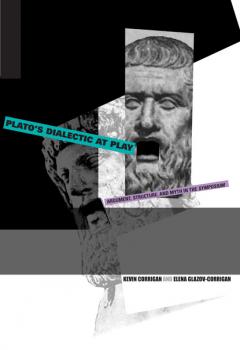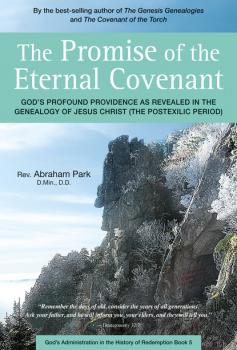ТОП просматриваемых книг сайта:
Философия
Различные книги в жанре Философия, доступные для чтения и скачиванияАннотация
In Is Philosophy Androcentric? , Iddo Landau contends that none of the arguments for viewing philosophy as pervasively androcentric ultimately stand up to rational scrutiny, while the ones that show it to be nonpervasively androcentric do not undermine it in the way that many critics have supposed. “Philosophy emerges, in almost all of its parts,” he concludes, “as human rather than male, and most parts and aspects of it need not be rejected or rewritten."
Аннотация
This is the first comprehensive study of Michael Oakeshott as a philosopher rather than a political theorist, which is how most commentators have regarded him. Indeed, the careful reading of his published and unpublished writings that Terry Nardin provides here shows that Oakeshott's concerns have been primarily philosophical, not political. These writings go far beyond politics to offer a critical philosophy of human activity and of the disciplines that interpret and explain it. Oakeshott argues that inquiry can be independent of practical concerns, even when its subject is the thought and action of human beings. Although the book considers Oakeshott's views on morality, law, and government, it is primarily concerned with his ideas about the character of knowledge, especially knowledge of intelligent human conduct, and focuses attention on the concepts of modality, contingency, and civility that are central to Oakeshott's philosophy as a whole. Nardin seeks to show how Oakeshott's critique of scientism and other forms of foundationalism supports a powerful version of the argument that history is the proper mode for understanding human choice and action. The book thus provides the fullest discussion available of Oakeshott's antifoundationalist view of epistemology, metaphysics, and the philosophy of history and the human sciences. It examines his arguments concerning the criteria of truth, the forms of knowledge, the relationship between theory and practice, the place of interpretation in the social sciences, the nature and importance of historical explanation, and the definition of philosophy itself. And it is the first study to look at Oakeshott's relationship to phenomenology, hermeneutics, and other movements in twentieth-century Continental philosophy.
Аннотация
How has the Internet been changing our lives, and how did these changes come about? Nathan Newman seeks the answers to these questions by studying the emergence of the Internet economy in Silicon Valley and the transformation of power relations it has brought about in our new information age. Net Loss is his effort to understand why technological innovation and growth have been accompanied by increasing economic inequality and a sense of political powerlessness among large sectors of the population. Newman first tells the story of the federal government’s crucial role in the early development of the Internet, with the promotion of open computer standards and collaborative business practices that became the driving force of the Silicon Valley model. He then examines the complex dynamic of the process whereby regional economies have been changing as business alliances built around industries like the Internet replace the broader public investments that fueled regional growth in the past. A radical restructuring of once regionally focused industries like banking, electric utilities, and telephone companies is under way, with changes in federal regulation helping to undermine regional planning and the power of local community actors. The rise of global Internet commerce itself contributes to weakening the tax base of local governments, even as these governments increasingly use networked technology to market themselves and their citizens to global business, usually at the expense of all but their most elite residents. More optimistically, Newman sees an emerging countertrend of global use of the Internet by grassroots organizations, such as those in the antiglobalization movements, that may help to transcend this local powerlessness.
Аннотация
Conscience, once a core concept for ethics, has mostly disappeared from modern moral theory. In this book Douglas Langston traces its intellectual history to account for its neglect while arguing for its still vital importance, if correctly understood. In medieval times, Langston shows in Part I, the notions of "conscientia" and "synderesis" from which our contemporary concept of conscience derives were closely connected to Greek ideas about the virtues and practical reason, although in Christianized form. As modified by Luther, Butler, and Kant, however, conscience later came to be regarded as a faculty like will and intellect, and when faculty psychology fell into disrepute, so did the role of conscience in moral philosophy. A view of mature conscience that sees it as relational, with cognitive, emotional, and conative dimensions, can survive the criticisms of conscience as faculty. In Part II, through discussions of Freud, Ryle, and other modern thinkers, Langston proceeds to reconstruct conscience as a viable philosophical concept. Finally, in Part III, this better grounded concept is connected with the modern revival of virtue ethics, and Langston shows how crucial conscience is to a theory of virtue because it is fundamental to the training of any morally good person.
Аннотация
In this first comprehensive treatment of Plato’s political thought in a long time, John Wallach offers a "critical historicist" interpretation of Plato. Wallach shows how Plato’s theory, while a radical critique of the conventional ethical and political practice of his own era, can be seen as having the potential for contributing to democratic discourse about ethics and politics today. The author argues that Plato articulates and "solves" his Socratic Problem in his various dialogues in different but potentially complementary ways. The book effectively extracts Plato from the straightjacket of Platonism and from the interpretive perspectives of the past fifty years—principally those of Karl Popper, Leo Strauss, Hannah Arendt, M. I. Finley, Jacques Derrida, and Gregory Vlastos. The author’s distinctive approach for understanding Plato—and, he argues, for the history of political theory in general—can inform contemporary theorizing about democracy, opening pathways for criticizing democracy on behalf of virtue, justice, and democracy itself.
Аннотация
The Symposium is one of Plato’s most accessible dialogues, an engrossing historical document as well as an entertaining literary masterpiece. By uncovering the structural design of the dialogue, Plato’s Dialectic at Play aims at revealing a Plato for whom the dialogical form was not merely ornamentation or philosophical methodology but the essence of philosophical exploration. His dialectic is not only argument; it is also play. Careful analysis of each layer of the text leads cumulatively to a picture of the dialogue’s underlying structure, related to both argument and myth, and shows that a dynamic link exists between Diotima’s higher mysteries and the organization of the dialogue as a whole. On this basis the authors argue that the Symposium , with its positive theory of art contained in the ascent to the Beautiful, may be viewed as a companion piece to the Republic , with its negative critique of the role of art in the context of the Good. Following Nietzsche’s suggestion and applying criteria developed by Mikhail Bakhtin, they further argue for seeing the Symposium as the first novel. The book concludes with a comprehensive reevaluation of the significance of the Symposium and its place in Plato’s thought generally, touching on major issues in Platonic scholarship: the nature of art, the body-soul connection, the problem of identity, the relationship between mythos and logos, Platonic love, and the question of authorial writing and the vanishing signature of the absent Plato himself.
Аннотация
Following his remarkable exegesis on the first and second periods of Jesus' genealogy, the best-selling author, in the fifth installment of <i>The History of Redemption</i> series, covers the third and final period, which spans the fourteen generations from the Babylonian exile to Jesus Christ. <i> The Promise of the Eternal Covenant</i> sheds light upon the labyrinth-like history of the 600 years before Jesus' birth. Throughout the book, Rev. Abraham Park demonstrates that God is sovereign over all history; the rise and fall of nations, kingdoms, and empires occur all according to God's eternal decrees and providence. His readers will be filled with assurance that God's promise of the Eternal Covenant will certainly be fulfilled.<br><br><b>Key features:</b><ul><li>Redemptive-historical discussions on the fourteen generations and their names in both biblical languages</li><li>The generations omitted from the third period of Jesus' genealogy and God's redemptive administration therein</li><li>Everything you need to know about the Babylonian exile and the return therefrom</li><li>An amazingly comprehensive chart which delineates:</li><ul><li> Israel's history and chronology of the kings, prophets, and high priest for this era</li><li> The chronological, geopolitical, and even redemptive-historical relationships between Israel and the world's superpowers like Assyria, Babylon, Persia, Greece, Rome, and Egypt</li><li> The continuation of the line of the promised seed toward Christ in the turbulent transitions in world history</li></ul></ul>This title is part of <i>The History of Redemption</i> series which includes:<ul><li>Book 1: <i>The Genesis Genealogies</i></li><li>Book 2: <i>The Covenant of the Torch</i></li><li>Book 3: <i>The Unquenchable Lamp of the Covenant</i></li><li>Book 4: <i>God's Profound and Mysterious Providence</i></li><li>Book 5: <i>The Promise of the Eternal Covenant</li></ul></i>
Аннотация
The jovial journalist, philosopher, and theologian G. K. Chesterton felt that the world was almost always in permanent danger of being misjudged or even overlooked, and so the pursuit of understanding, insight, and awareness was his perpetual preoccupation. Being sensitive to the boundaries and possibilities of perception, he was always encouraging his audience to find a clear view of things. His belief was that it really is possible, albeit in a limited way, to see things as they are. This book, which marries Chesterton's unique perspective with the discipline of philosophical hermeneutics, aims to outline what Chesterton can teach us about reading, interpreting, and participating in the drama of meaning as it unfolds before us in words and in the world. Strictly speaking, of course, Chesterton is not a hermeneutic philosopher, but his vast body of work involves important hermeneutic considerations. In fact, his unique interpretive approach seems to be the subtext and implicit fascination of all Chesterton scholarship to date, and yet this book is the first to comprehensively focus on the issue. By taking Chesterton back to his philosophical roots–via his marginalia, his approach to literary criticism, his Platonist-Thomist metaphysics, and his Catholic theology–this book explicitly and compellingly tackles the philosophical assumptions and goals that underpin his unique posture towards reality.
Аннотация
Theology after Heidegger must take into account history and language as constitutive elements in the pursuit of meaning. Quite often, this prompts a hurried flight from metaphysics to an embrace of an absence at the center of Christian narrativity. In this book, Conor Sweeney explores the «postmodern» critique of presence in the context of sacramental theology, engaging the thought of Louis-Marie Chauvet and Lieven Boeve. Chauvet is an influential postmodern theologian whose critique of the perceived onto-theological constitution of presence in traditional sacramental theology has made big waves, while Boeve is part of a more recent generation of theologians who even more wholeheartedly embrace postmodern consequences for theology. Sweeney considers the extent to which postmodernism a la Heidegger upsets the hermeneutics of sacramentality, asking whether this requires us to renounce the search for a presence that by definition transcends us. Against both the fetishization of presence and absence, Sweeney argues that metaphysics has a properly sacramental basis, and that it is only through this reality that the dialectic of presence and absence can be transcended. The case is made for the full but restless signification of the mother's smile as the paradigm for genuine sacramental presence.
Аннотация
Twelve scholars take us on a journey through twelve books that have defined the methodologies and orthodoxies of key disciplines within the university curriculum. These books have not only been formative for their respective disciplines, but have reshaped the university and continue to reframe our understanding of education. Each chapter places a Great Book in its historical context, summarizes the key ideas, and assesses the influence of the text on its discipline and society as a whole. In addition, each contributor offers an evaluation from a Christian perspective, explaining both the benefits of the book and the challenges it presents to a Christian worldview and philosophy of education.










